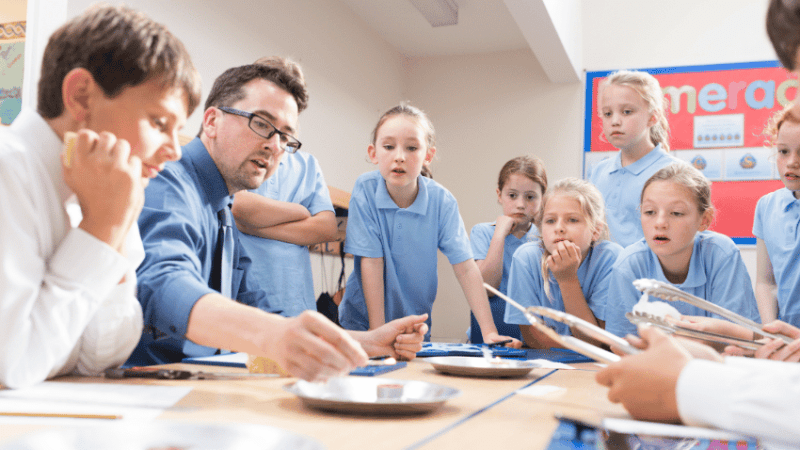Instead of Coercing Students into your Way of Thinking, How About Trusting them to Make Sensible Decisions for Themselves?

“Pomme puree with a light foam glaze? We call it mashed potato so that they can choose whether it fits into their own plans for a balanced diet”

‘Irrelevant’, ‘uninformed’, ‘a nuisance’. I still hear heads and teachers saying this about listening to their own students.
I believe it is arrogant to believe that students are incapable of contributing meaningfully to discussions around their own learning and preparation for their futures.
Even more so now as technological change – and the way we relate to each other and thus engage with the world – is carrying us into an unrecognisable future.
Our students are at the forefront of these changes and understand their interface in a way that teachers can usually only begin to grasp.
Young people have always seen the world through a different filter from that of the generations before them, looking at life’s challenges with hope (until we – the mature and ‘wiser’ generation – deflate their optimism with tales of failure and division).
They are the precisely the people whose views we should be seeking.
Political correctness?
To some, activities such as student elections are meaningless shams, designed to appease political correctness and of no value to the young people themselves. Others see them as the perfect preparation for the real world where elections are – well – less than perfect.
Disappointment, despair, and the resulting phoenix of hope, are all part of the political life that everyone experiences once they qualify to vote.
I say let our young people experience the pitfalls and discouragement of political life; because the sooner they can start to think of solutions, the better.
Others argue that if you entrust pupils with their own physical welfare and give them, for example, a choice of chips or quinoa for lunch they will always plump for the former.
Well, in my school, while the girls wouldn’t rule out chips as an option, their overriding concern is to choose healthy food that they also like. A good training for life, wouldn’t you think?
What they have made clear is that they reject elaborate wordsmithing about their choices. Pomme purée with a light foam glaze? We call it mashed potato so that they can choose whether it fits into their own plans for a balanced diet.
At a recent conference I heard student councils sneeringly described as a way of ensuring that the school’s management values and decisions are reflected. Not in my school!
Trending
Whether or not they add usefully to the life of the school community depends on the trust and respect that exist between the students and the teachers.
Negotiation and compromise
For example, when I decided to change the school uniform I designed what I considered to be a pure fashion statement in cool grey with red trim. The girls were horrified.
Photos of the proposed concoction spread to old girls across the world who joined in the protest.
I sat down with the students. We discussed, we redesigned. The resulting uniform of blue and red is now worn with pride by our students and, I have to admit, they were right to reject my cool grey.
Likewise, when we were planning our new 6th form building, I asked the architects to involve the girls from the first stage of design. The result is award-winning building that we all love.
It contains everything the teachers wanted and everything the girls valued, including digital learning pods and break-out spaces themed (the girls’ ideas) around Big Ben, New York Central Park and a 1950s cinema.
Last week I asked all our students (and teachers) what they thought great learning looked like. Their responses make spectacular reading. These young people are the designers of the future, so of course they have great ideas today.
A school cannot be managed like a 1960s cooperative. But we should welcome our students’ voices. They think expansively, they are prepared to negotiate, and they understand – even when the answer is ‘no’ – that you have listened to and respect their opinions.
As a result, when the more difficult decisions have to take place they do so in an atmosphere of trust on both sides.
As one of my 6th formers said recently, “At Queen Anne’s, I am able to share my thoughts without being judged.” They don’t need placards or marches to be heard here.
Julia Harrrington is headmistress of Queen Anne’s School, Caversham.











